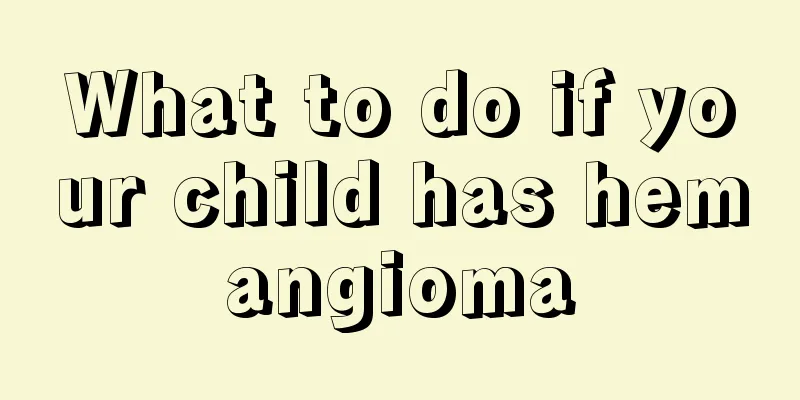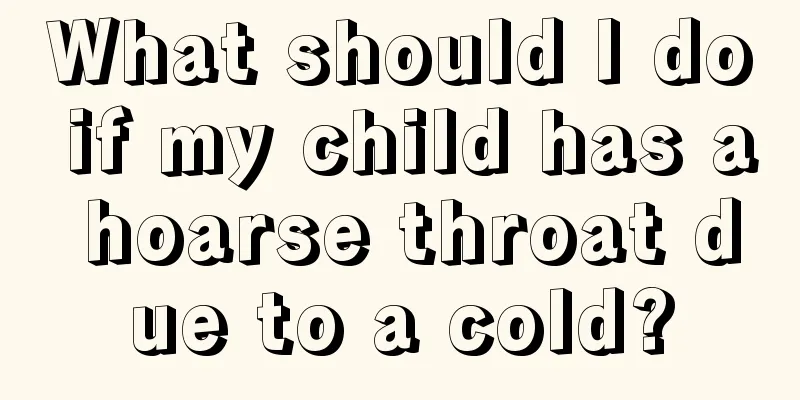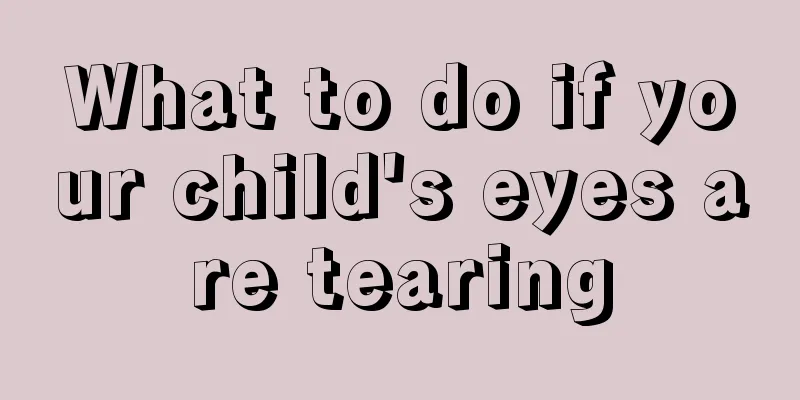What happened to the child's broken nose?

|
Nowadays, most families have only one child, and several parents revolve around one child. If the child makes any slight movement, the family members will become very nervous. Sometimes parents find their children's noses are broken after picking them up from kindergarten. What's wrong with the child's broken nose? This may be caused by nasal mucosal damage caused by the child's cold or fever, or the child may pick his nose frequently. Let's learn more about it~ Children's nosebleeds are usually caused by injuries to the front part of the nasal septum. This area has several blood vessels that intersect and are arteries, so the amount of bleeding is large. Children who are prone to nosebleeds can be roughly divided into the following types1. Children with colds have lower resistance to the nasal mucosa, and the symptoms of colds (nasal congestion, runny nose, nasal pus, etc.) will cause children to do some actions that directly hurt the nasal mucosa (such as blowing their noses hard, picking their noses, etc.), which can easily lead to nosebleeds. 2. Children with allergic rhinitis often pick their noses due to itchy, runny noses, and nasal congestion, which often causes the nasal mucosa to be injured and bleed. 3. Children who have the habit of picking their noses with their fingers will repeatedly injure the entrance of the nose and the nasal vestibule due to frequent picking of the nose, which will form scabs. When the nose is stained with mucus, the children will pick it uncontrollably, and this vicious cycle will cause ulceration and bleeding at the entrance of the nose and the vestibule over time.4. Children with blood diseases: Although the nose of such children is not injured, they often have nosebleeds. The flow rate is usually slow, but the number of times is very frequent. In this case, you must go to the hospital immediately for a blood test. 5. Nosebleeds may be caused by dry air and dry, fragile nasal mucosa that is prone to bleeding. You can apply peppermint oil to the nasal cavity, or ask a doctor to check and confirm the condition and provide symptomatic treatment to improve nosebleeds.Parents should not panic when they see their children's noses bleeding. It is best to immediately press the nostrils on both sides with the thumb and middle finger at the same time to compress the bleeding area and stop the bleeding. Release your hands after about five minutes to see if the bleeding has stopped. If it continues to bleed, repeat the pressure on the nostrils for five to ten minutes. In most cases, the bleeding can stop. If the bleeding still cannot stop, you must go to the ENT emergency department for diagnosis and treatment immediately. |
<<: White and sticky nasal discharge
>>: What happened to my baby's broken nose?
Recommend
Baby has diarrhea and anus is red and painful
Every baby is a little angel who brings endless j...
What to do if children have poor appetite in summer
Children tend to become picky eaters in the summe...
What is the reason why babies walk with their feet turned inward?
Nowadays, every family with a baby treasures the ...
Clinical manifestations of sepsis in children, high fever needs to be vigilant
Pediatric sepsis is an inflammatory response caus...
What to do if your child has tooth decay
I believe everyone knows about dental caries. Man...
Reasons why children cry at night
Babies always cry loudly when they sleep. This re...
What to do if infants and young children take too much calcium
In order to help us maintain a healthy body, many...
10-year-old child can't sleep at night
Most children can sleep longer than adults. Usual...
What are the symptoms of calcium deficiency in eight-month-old babies?
In fact, it is very difficult to take care of bab...
Why does my child keep turning over when sleeping at night?
Parents all hope that their babies can have a goo...
Symptoms of a newborn's fussiness
In our lives, there are always some babies who ar...
What should I do if my child has asthma-related pneumonia?
Pneumonia is also relatively common in our lives....
What causes frequent urination in six-year-old children?
If a 6-year-old child has frequent urination, on ...
Will the child grow taller after development?
In fact, many people want to have a tall stature,...
What to do if children have tooth decay
What should be done if children have tooth decay ...









